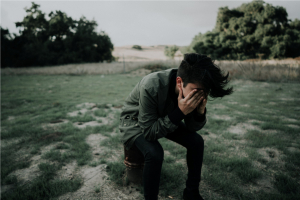The statistics of people reporting that they are suffering from loneliness and depression are increasing to the extent that it is now being considered a public health risk. A lot has changed in our world that has caused us to live much more unconnected lives than those in yesteryears. Before industrialization and modernization, human beings found belonging, connection, and identity in their respective communities.
 These communities though not perfect in themselves were there to help one navigate through life and get help when needed. Most of us today are living and working away from the places we grew up in. This poses major challenges when it comes to building community. Glendale Christian Counseling helps individuals find connection and support, fostering meaningful relationships in their faith journey.
These communities though not perfect in themselves were there to help one navigate through life and get help when needed. Most of us today are living and working away from the places we grew up in. This poses major challenges when it comes to building community. Glendale Christian Counseling helps individuals find connection and support, fostering meaningful relationships in their faith journey.
This lack of community and many other contributing factors are being blamed for an increase in most of us experiencing prolonged periods of loneliness, and unfortunately for others, this loneliness might then develop into depression.
Distinguishing between symptoms of loneliness and depression can be difficult as those are similar in many instances. However, loneliness can be defined as an emotional state that relates to the need for connection and not having any or feeling like there is none. Depression on the other hand mental health condition that is multi-faceted and complex.
Both depression and loneliness pose serious health risks and should be managed whenever detected. As mentioned earlier, the symptoms of depression and loneliness may be similar in a lot of instances, below is a list of what can be experienced by someone struggling with either loneliness or depression:
- Low energy.
- Lack of motivation.
- Mental fogginess.
- Irritability and short-tempered.
- Restlessness.
- Change in sleeping and eating habits.
- Physical symptoms like headaches, fatigue, and shortness of breath.
- Sadness.
This is not an exhaustive list but it can give an idea of why it is difficult to self-diagnose. Though both loneliness and depression are fundamentally different, they do have a link and sometimes they can be a cycle that can be hard to break, without knowing what caused the other. For example, one would ask, “did my depression cause me to be lonely”, or “into did my loneliness eventually cause me to suffer from depression”.
What causes loneliness and depression?
 Life experiences that bring about a lot of change, like divorce, bereavement, retirement, promotions at work, or relocations.
Life experiences that bring about a lot of change, like divorce, bereavement, retirement, promotions at work, or relocations.- Discrimination for any reason.
- Low self-esteem.
- Health issues, whether mental or physical.
- Difficulty in forming and maintaining relationships.
- Forced isolation.
- Trauma.
How to manage loneliness.
Acknowledge your feelings. The first step to change or healing is recognizing that something is not right. When we are feeling lonely it might be hard to accept it ourselves, but getting over that huddle will be the first step to change. When we know what’s wrong with us, we are better equipped to look for solutions.
Volunteering. When we are feeling lonely, we feel a lack of connection with our fellow man. Offering oneself voluntary work is a great place to start to try and develop relationships but also know that you are contributing to society.
We feel good about ourselves when we are bringing about change in the lives of others. When we volunteer, especially for causes we are passionate about we allow ourselves to learn something new, give our lives a sense of meaning and also build new experiences with others.
Joining a sport or a group. Sports are one of the easiest ways of finding community. Sports make conversation easy and for connecting with others of similar likes. When we join something that we are passionate about we stimulate our creativity and hence have something to look forward to.
 When one feels lonely, sometimes they feel like they don’t belong. Joining a group or club helps with feelings of belonging and the potential of long-lasting relationships formed out of those groups.
When one feels lonely, sometimes they feel like they don’t belong. Joining a group or club helps with feelings of belonging and the potential of long-lasting relationships formed out of those groups.
Practice self-compassion. Self-compassion is the ability to look at ourselves with empathy, love, respect, and compassion. When we feel we are not in the place we want to be, a lot of us tend to be harsh, critical, and judgemental toward ourselves. This makes it hard for us to build and maintain relationships with others.
Practicing self-compassion when faced with loneliness means we acknowledge our need for others and make necessary adjustments. We are not afraid to try because even if we try and don’t get it right the first time, we are not quick to judge, but give ourselves room to grow and learn.
Join a support group. Sometimes people feel lonely since they have experienced a traumatic event or heartbreaking event and they are still trying to heal. We heal in the community. Joining a support group of people that might have experienced similar pain can be a major source of comfort, companionship, belonging, and feeling understood and heard. Support groups also help in the healing process which means one would be ready to face the world again and foster those existing relationships.
Get a pet. If possible, get yourself a pet. Pets are a great source of unconditional love and companionship. You will also feel a profound sense of purpose as you care for your pet and exert your energies elsewhere.
The great thing about pets, especially dogs or cats is that they would need to be taken out for walks, and in doing so, you also get the opportunity to get some air and some sunshine. Pet overs also have great communities, in walking your dogs you will have an opportunity to meet others and build friendships.
Be mindful of your thought patterns. When we are feeling lonely, it is common at times to make our situation worse by thinking about it all the time. When possible, we should always be mindful of what we are thinking about, how we are interpreting our situation, and at times making it worse.
 This is not to say loneliness is all in our heads, by no means! It just means that when feeling lonely we need to try not to dwell on self-defeating thought patterns, instead, we need to challenge these thoughts that make us believe we are unlovable, unsupported, and not needed. We need to reinforce the fact that we too, like everyone else deserve love and connection. This we can do on our own or with the help of a professional.
This is not to say loneliness is all in our heads, by no means! It just means that when feeling lonely we need to try not to dwell on self-defeating thought patterns, instead, we need to challenge these thoughts that make us believe we are unlovable, unsupported, and not needed. We need to reinforce the fact that we too, like everyone else deserve love and connection. This we can do on our own or with the help of a professional.
Self-care. Taking care of oneself has many benefits. Not only does it boast our self-esteem but it also helps us fight some of the physical ailments that might develop as a result of battling with loneliness. Sleeping right, eating right, exercising, meditating, and journaling all help in making sure that our body and mind are right, giving us a fighting chance.
Sustain current relationships. Relationships work. It is not easy building and maintaining connections. When we know this, we will not be scared when faced with challenges in our current relationships.
When feeling lonely, reach out to those people you have journeyed with, who know you and love you, and commit to working on those relationships. If you lack certain skills, make the effort to learn. It will be worth it.
Seek help. Seeking help with loneliness should not be a last resort. You can seek help even when you start noticing that there might be something wrong. This will help give you trusted guidance and also professional advice that is tailor-made for your particular situation.
Most companies will have Employee Assistance Programs ( EAPs) aimed at helping their staff with free access to counselors or therapists. Make use of those facilities. Most schools and Universities will also have Student counselors that can provide emotional support and cater to your well-being as a student.
We are here to help.
We started our discussion by focusing on loneliness and depression. Both these can have debilitating effects on day-to-day functioning, regardless of which one you are dealing with.
If you find that you are no longer able to perform tasks as you used to, you have been feeling sad for a prolonged period or you have had thoughts of self-harm or suicide as a result, please reach out for help. At Glendale Christian Counseling, we have counselors and therapists ready to help you identify what you would need to start your healing journey and guide you in your steps.
“Contemplation”, Courtesy of Priscilla Du Preez, Unsplash.com, CC0 License; “Running Away”, Courtesy of Vitaly Taranov, Unsplash.com, CC0 License; “Sitting and Thinking”, Courtesy of Michael Tucker, Unsplash.com, Unsplash+ License; “Grieving Alone”, Courtesy of Francisco Gonzalez, Unsplash.com, CC0 License
-
Joanna Kucherera: Author
Hi there! I am Joanna Kucherera, a Writer, Speaker, and Trainer with a
passion for mental health awareness, relationships, and family counseling.
I hold an Honours degree in Psychology from The University of Zimbabwe.
Beyond my professional endeav...Recent Posts
DISCLAIMER: THIS ARTICLE DOES NOT PROVIDE MEDICAL ADVICE
Articles are intended for informational purposes only and do not constitute medical advice; the content is not intended to be a substitute for professional medical advice, diagnosis, or treatment. All opinions expressed by authors and quoted sources are their own and do not necessarily reflect the opinions of the editors, publishers or editorial boards of Stone Oak Christian Counseling. This website does not recommend or endorse any specific tests, physicians, products, procedures, opinions, or other information that may be mentioned on the Site. Reliance on any information provided by this website is solely at your own risk.





